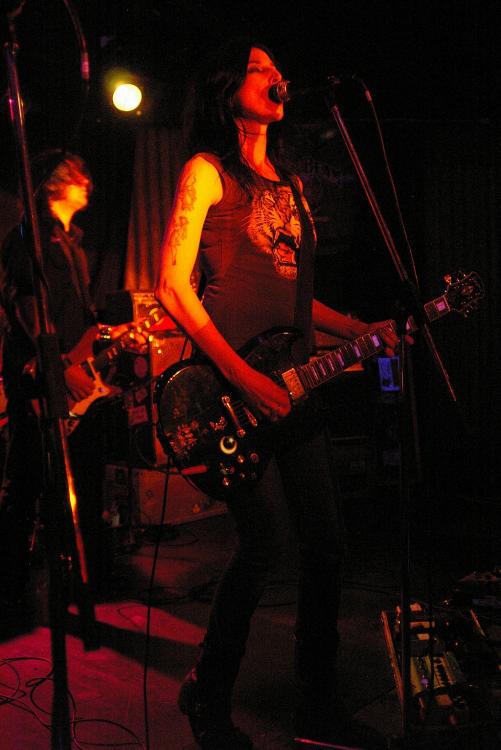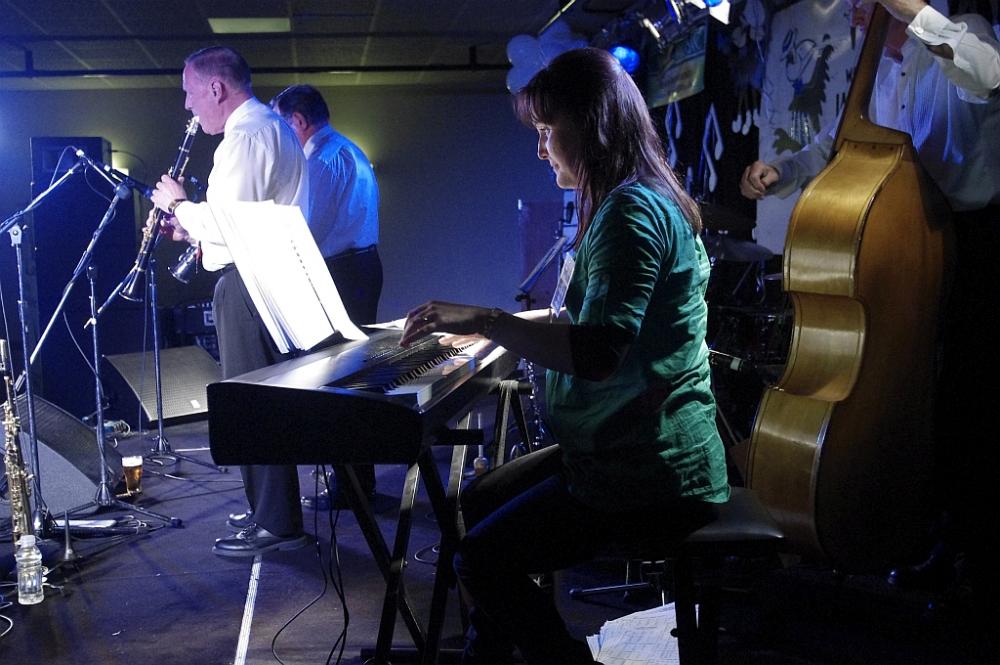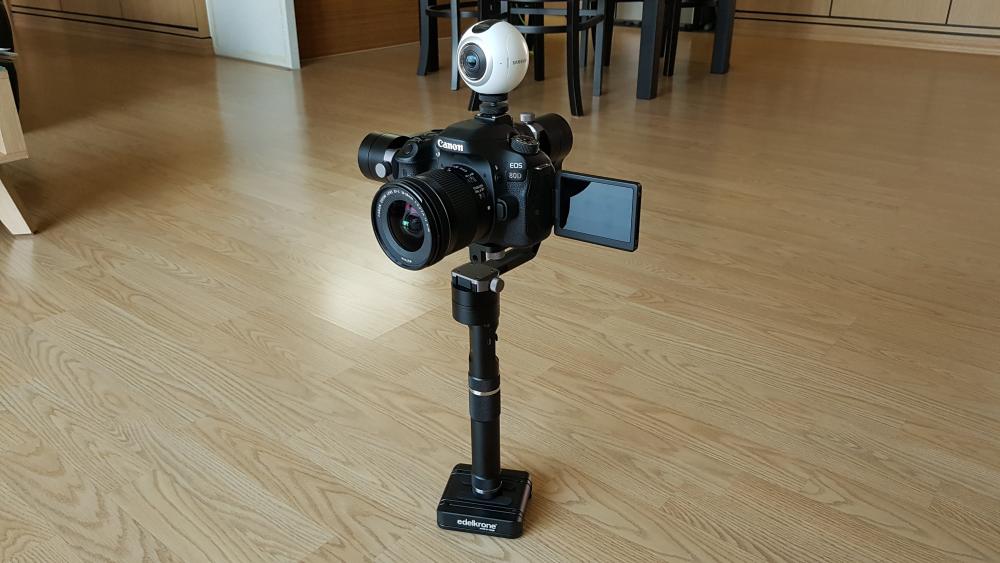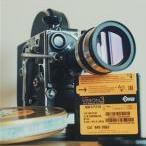Leaderboard
Popular Content
Showing content with the highest reputation on 02/16/2017 in all areas
-
GH5 Noise Reduction @high ISOs simply sucks...
tomsemiterrific and 6 others reacted to Simon Shasha for a topic
I have a rule. Even with A7S. If you need more than 1600ISO, you probably shouldn't be shooting there in the first place. Either change the scene's location, or use lights. Simple.7 points -

Travel in Jordan [Sony a7sii + Zhiyun Crane + Sony 28mm f2]
Kubrickian and 3 others reacted to mojo43 for a topic
Shot this for the tourism board a few months ago, different edit for them, but I had so much footage that I just threw this together. Trying to work on my social media subsciptions4 points -
@lucabutera Thank you for answering! Unfortunately I can only help by 1. Buying the adapter when completed and 2. After buying, doing some tests with many "rare" EF lenses when used with the NX1. It's a crazy world...Innovative, enthusiastic and technically talented people like you outrange world wide acting global companies...Creative spirit, innovation and enthusiasm wishing the floor with the "fat cats" of the digital imaging industry...You made my day... ;-)3 points
-
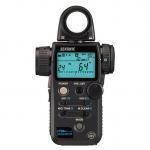
GH5 Noise Reduction @high ISOs simply sucks...
Don Kotlos and 2 others reacted to Emanuel for a topic
I do firmly believe the most part of us here can only concur with your two cents there : ) My other two and leitmotiv for POV of this thread is only to point out the fact: 4/3" sensor size by Panasonic seems to not match its competitors, the sister Olympus included, at least; as it should be supposed to be, I guess. Lame chance for the new toy : ( But, to be able to beat any other camera in the right hands? But anyone doubts? A camera is not only high ISOs, fancy NR algorithms or stupid marketing strategy trying to mimic the other Sony girl. I also want to believe that internal 10-bit 4:2:2, 4K/60p (not internal@4:2:2), etc is a proof of solid mature attitude to defy the major players outside and break the waves pushing the envelope further. I just think pretty immature all this NR nonsense. For once and ever, there's nothing videoish about grainy outcome, but filmic! Truly disappointing from their own to my book.3 points -
I shoot live bands in whatever light is available to me and have done so with many cameras since film SLRs. I can not change the location and I can not add light. Each generation has gotten better and better but for me, the A7s is the camera I always wanted as it means I can use 5.6 or even f8 if I want to. I just don't worry about ISO anymore. I do use ISO 51200 and even higher from time to time (ISO 80,000 is fine for me often and sometimes 102400 is as well). The bands, and odd newspaper have been happy to use some of my shots at 51200. I use auto ISO and what I use depends on where I am aiming at and the light available. I would prefer if it stayed at lower ISOs but sometimes, in some of the bars and pubs I shoot, there is just no choice. With each camera I have used, I have had my limits. Original A7 was 12800 with the odd shot a bit higher, Pentax Kx was ISO 6400, sometimes ISO 8000, My GX7 (I have only used for live music on the odd occasion), I don't like over 3200 (6400 in a pinch). Earlier DSLRs were a bit lower. Film and ISO 3200 was mostly very grainy but I was restricted most of the time to using fast lenses. A few years ago I shot in a club/bar that was lit by a couple of shaded table lamps. I was using an APSC DSLR at the time and ended up with very few usable shots. I would have loved to have an A7s there. Many of my current venues are just pub corners and one is an outdoor beer garden with all gigs at night. I mainly shoot stills but I use the same lenses with the same auto ISO settings for video and have been very happy so far.3 points
-
What horror film is shot in 25,600 ISO?! There are specialized security cameras with infrared and other technologies, you are not going to put a A7s as a security camera, first of all, it would be the first to be stolen!3 points
-
Sankor 16C on FF taking lens
Christina Ava and 2 others reacted to Timotheus for a topic
Use Tito's calculator :-) http://www.tferradans.com/blog/?p=133863 points -
My Review of the Zhiyun Crane 3-Axis Gimbal
Gregormannschaft and one other reacted to Axel for a topic
*UPDATE* My Zhiyun now works with every lens, and it's like a magic wand. For all those who experience the same problems (like Alex Uzan), I have a slightly different description how to balance the Crane. The first step in many tutorials is adjusting the yaw/tilt axis with the thumbscrew. From the Zhiyun instruction PDF: Whereas this isn't exactly wrong, it was misleading for me. The second step (also in the above manual) is to move the camera forward or backward on the mounting plate: For light camera/lens combos (< 800g) proceed as follows: 1. Set the yaw/tilt axis to 10mm: 2. Mount the camera roughly in the middle of the mounting plate. Let go. The lens will face straight upwards (all descriptions say: let it first fall down). 3. Alternately push the camera forward ever so slightly and then shorten the yaw-axis step by step: 9mm, 8mm asf. - until the lens starts to point down a bit. 4. Fix the thumbscrew! With my total payload of ~ 600g this happens at 4mm. The camera is also some 4mm away from the edge of the mouting plate. 5. Push the camera backwards on the mounting plate very slightly & check if the lens points directly forward and turns back to this position through gravity. Fine-adust. 6. Tighten the camera screw. The rest of he balancing descriptions worked for me. You may laugh at me. If you try to let a very low payload face down first and start by loosening the tilt-thumbscrew, this axis is out of range immediately. It's better to start from the other end.2 points -
The LG 31MU97-B I mentioned is 10 bit BTW. No affiliation, just a fan.2 points
-

Sankor 16C on FF taking lens
Justin Bacle and one other reacted to Tito Ferradans for a topic
THIS guy! :P2 points -
2 points
-
IMO, that comment is what makes FCPX so damn special, especially if you ever used iMovie HD. To me it seems like they took the best parts of FCP7 and iMovie HD and created this amazing hybrid. It's not for everyone, but I can appreciate it.2 points
-
Yeah, I'm rethinking the GH5+12-60 kit that I have on pre-order. It won't get here in time for the job where I wanted the extra slow-mo, and for what I do I get by with my 2 GX80 and two primes. I've got the Voigtlander 17.5/42.5 as well as the PL15/1.7 and Olympus 75/1.8 for when I need autofocus. I did a shoot with the Olympus 17/1.8 and the 75/1.8 on the old Olympus E-P5 which looked quite good. I do find that sometimes the Olympus 75 is a bit too tight so that was why I'm considering the P42.5 /1.7 which also has OIS. I still like the Panasonic 35-100/2.8 for outdoors events as the stabilisation in video seems to work now with the GX80 (it had bad stutter with OIS only - see my youtube tests). I've also bounced around the idea of using an adapted Tokina 11-16 and Sigma 18-35 for video-only work but that is probably too heavy for the GX80 which already can get uncomfortable when using the Voigtlanders.1 point
-

GH5 Noise Reduction @high ISOs simply sucks...
webrunner5 reacted to Justin Bacle for a topic
The problem doesn't come from sensor size actually but more from pixel size. So you could make a great low light m4/3 sensor. But only at smaller native resolutions1 point -
Three shots. The first from 2005 with a IST*D at ISO 3200 (Adalita from Magic Dirt) The next from 2011 at a festival I was shooting for with a Kx at ISO 3200 and the last from 2015 with a A7s at ISO 102400 (US rock band 10 years).. I used a fast shutter speed for the A7s shot as the band is very fast moving and the light was also changing rapidly. While not great, I think the A7s shot is far better than the IST*D shot. These days I would likely delete that IST*D shot but back then some from that gig were used on their 2005 Warner album Snow White at small size in the collage. I have shot several festivals, sometimes for the festival and sometimes you just have to take what light you get. The A7s shot was in brighter light than the Magic Dirt shot but that is another advantage of better high ISOs - I can use much faster shutter speeds when I want. I never even tried my Canon 7d for live music. That camera was for other things.1 point
-
What tools do you use for lower thirds, overlays and graphics?
Turboguard reacted to sina_html for a topic
Actually with the help of Photoshop, you can really cover all the basic stuff in premiere. you can animate position, scale, rotation, opacity etc... and can even add motion blur with the help of transform effect.1 point -
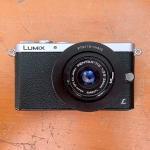
What tools do you use for lower thirds, overlays and graphics?
hyalinejim reacted to fuzzynormal for a topic
Indeed. Consider the choir preacher to.1 point -
@Simon Shasha we all worked with 640ISO for many many years! The truth is that until a couple of years ago and the sales of A7S cameras noone was shooting above 3200, and that number was even lower a few years ago, and if we go back to film, well..you get the point. I seriously do not understand how instantly we negate 100 years of motions pictures because couldn't shoot in pitch dark. Photography= phos(light)+graphy(writing)= you search for the light, not the luck of it Obviously I am not sad that machines will be able to see in total darkness soon, just ain't that anxious about it. When it happens it happens.We shot Kodachrome film in Super 8 cameras, never complaint that we didn't have the Cubrick lenses!1 point
-

What tools do you use for lower thirds, overlays and graphics?
Davey reacted to hyalinejim for a topic
Well, when you're making the usual corporate videos like I do from time to time, you need to get with the ridiculous.1 point -
My Review of the Zhiyun Crane 3-Axis Gimbal
webrunner5 reacted to Phil A for a topic
Seeing how there is nothing in the video that needs changing of focus while using a wide aperture, I don't see how you would be limited by using an adapted lens. The only advantage with using the native Sony glass is using it wide open with AF-C ... but then the A7s anyway has a bad autofocus system so you probably wouldn't want to do that to begin with.1 point -
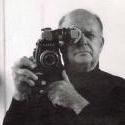
My Review of the Zhiyun Crane 3-Axis Gimbal
Dan Wake reacted to Gregormannschaft for a topic
Quick question: Is this useable with the Sony A7SII and no native lens? I wanted to use this with a vintage 35mm lens but have only now realised that getting focus might be quite difficult, what with the screen and EVF obscured. Would I need to pick up a native Sony lens to make best use of the gimbal? This was made with the Sony A7SII and native lenses but the videographer did note he wasn't overly impressed with the native glass.1 point -

My $125 Blackmagic Pocket Cinema Camera Test
Juxx989 reacted to webrunner5 for a topic
Yeah Black Magic stuff can be habit forming! Best bang for the buck. But I do wish they would come out with Version 2 on all of them and solve the quirks on them. I mean no camera is flawless, but BM is new to the game, came up with some crazy cheap stuff, with no way to really fix the warts on them. Time to get quality in the bodies also, and in some cases better form factor. BMCC comes to mind.1 point -

Samsung NX Speed Booster
lucabutera reacted to Marco Tecno for a topic
Of course I totally agree with you. A company like metabones can not only "capitalize" on its past experience, but also on the low cost of manufacturing in their country and the existing (or potential) users base for their products. But, again, the 10k should more or less fill this gap and set you in a competitive position (hence the price figures I gave), especially considering that you are talented and are (this is very crucial) a NX fan. Let's face it: I think that nobody else could start such a project, since you would ever earn from it1 point -
FWIW, according to: http://www.thehurlblog.com/cinematography-online-micro-four-thirds-lenses/ the Panasonic 15mm delivery quite some "filmic" image if set to f2.5, however he totally dislikes the oly 17mm 1.8 - a lens that I like very much. So...1 point
-

Samsung NX Speed Booster
SMGJohn reacted to lucabutera for a topic
Hello Arikhan, before responding to your questions I want to express my respect for you, because you have hit the center of the problem of costs. you can not expect to build a few pieces and have a lower cost than a Chinese production of tens of thousands of pieces. Initiate a prototyping for small quantities in Italy is very expensive, we must consider that the costs are high, here I agree with @Marco Tecno about the 10k offered by ttbek can amortize the initial prototyping costs. To answer your questions: - Yes, I'm sure because I'm already working on smart adapter. I have devised various adapters, all AF and IS but with different characteristics; - For the prototype I employ approximately 2 months; - Yes, they can be updated via USB.1 point -
GH5 Noise Reduction @high ISOs simply sucks...
tonysss reacted to Simon Shasha for a topic
I shot live music for a long time (video below). All on Canon 7D and 60D. Pretty much only had one lens (Sigma 30mm F1.4), and would rent a Sigma 20mm F1.8, or Canon 70-200 here and there/when needed: The Canon 7D and 60D were not ISO champions, they pretty much fell apart after ISO 640. When I bought my A7S, I wasn't that impressed. Sure, I could shoot crazy high ISO, but given my experience with the 7D and 60D, I didn't really need it in the end. Not for the shooting style I had developed by that time, anyway. Fast aperture made the difference. Most of the time. I'd gotten so used to pulling focus at F1.4 - F1.8. Would drop the shutter to 1/40, 1/30, if the lighting being used allowed it. Was never fond of shallow depth of field. Tried to keep my shots wide to avoid it. I always found very shallow depth of field disorientating. I never used my own artificial light - I always found it visually obtrusive, fake. I wanted viewers to feel like they were there. I guess I had to really choose my shots back then. Wait for the light. There were many times where I wouldn't be shooting at all, just waiting on the sidelines for the light to change. If I got the shot, I got the shot, if I didn't, too bad. Sometimes I think it was better this way - stopped me from over-shooting. The only downside was having to pay attention non-stop to the lighting...but I guess that's our job in the end, no?1 point -
@lucabutera Personally I would pay 550 EURO for an Canon-EF to NX adapter with fully working IS and AF. If you complete this project, I will buy this kind of adapter immediately - for 550 EURO +/-. I still have some questions: Is it for sure, that you will begin to work on such an adapter in next time? How long do you think, the completion of this project could take? Do you plan an updatable adapter (eg per USB) for eventual firmware updates / adding features/ bug resolving? Thank you for answering! For myself I think that is a quite small market, so the prices for such an adapter can not compete with "mass markets", like some of the Metabones adapters - because Lucabuetra will (probably) never sell thousands of such devices And still, NX users should try to support active and intelligent small manufacturers putting a lot of effort in a successful work, giving filmers by far more options to work with the NX system. Up to 600 EURO, I don't think this is overpriced.1 point
-
Many Moons ago I used to edit commercials at a local news station I love post production but I never learned how to shoot. Ive been teaching myself to shoot with my NX-1 but I cant believe this little $125 BMPCC is making me rethink. Ive never touched a Blackmagic Camera before. Maybe I should sell my NX-1 and 6 lenses (including both "S"Lens 30mm, 16mm, 45mm 12mm) Get a Metabones bmpcc EF adapter find some EF lenses over the next couple of months (18-35 1.8 70-200, 50mm) and shoot for a URSA Mini down the line... BMPCC Its a bit of a pain to shoot with but when you get those buttery prores and raw files into resolve they are truly FUN to work with... if I do sell my NX stuff I can sell my resolve dongle because I don't need it without h265 and I would prob get one free with a URSA mini purchase down the road... Ill meditate on it for a month or so. Thanks for the kind words man1 point
-

Panasonic GH5 - all is revealed!
Orangenz reacted to webrunner5 for a topic
I like the look of this video. Damn good job. Neither the Gh5, or the GH4 did much for me on this video at all. Looks like a Sony VG-20! And I had a VG-20, and a VG-30, loved the concept, Hated the output! Yikes.1 point -

Gimbal for Gear 360 (Samsung VR Camera)
Kisaha reacted to Michael Ma for a topic
I always wondered what the results would be if someone bothered to put a light 360 camera on a camera's hot shoe that was stabilized on a gimbal. This is the rig I wish I had on my honeymoon, unfortunately we didn't have these options a year ago. Now that I've got around to it, I would like to share the results. Gear: Gear 360 Canon 80D (I recommend a taller camera over a mirrorless. Also, lighter camera won't always work out in your favor if the rig is top heavy which makes the 360 camera prone.) Zhiyun Crane (I tried something very similar with my Pilotfly H1+ GH3, and a GoPro Hero 3, and it was too shaky as the motors was not strong enough). The Zhiyun Crane with the 10-18 STM lens had no problem with the Gear 360 on top. Note: The edelkrone TILTHEAD is only there as rudimentary stand and more importantly a counterweight to balance a top heavy rig. Somehow adding a lot more weight to the bottom makes it much easier to hold for longer periods. Results: It stabilizes very nicely. In fact, when the 360 camera itself is placed on a table that is not perfectly level, the stitching doesn't seem to align that well, but when on a gimbal, it's always holding that perfect longitudinal (roll axis) level, even during movement. If you can get a taller coldshoe mount than the one I'm using (without making it too top heavy), that would be much better. As high as it is, the gimbal is very apparent in the shots if you look slightly down. Premiere Pro has tools to work with 360 videos now and lets you pull normal looking 2D shots in the NLE. And even though the the quality is much better than I expected from the YouTube videos online, the video quality still has a long way to go. The 2D frames offer less quality than a HD (720p) camera would provide. Still useful for something like a vlog. Currently, 2 cameras are being recorded and stretched on a 4K file. I think we need to have at least 8K (maybe more) to match the 2D image quality from a GoPro. Other notes. As you might have imagined, having a big ball on top of your camera will limit the movement of your gimbal slightly. You cannot extend your camera outwards with the camera facing out as the Gear 360 would make contact with the roll axis motor. Also, keep in mind, unless you are willing to hold this above your head, your face is always in the shot, which may be undesirable.1 point -

Cameras With 4:3 Anamorphic Mode?
elgabogomez reacted to Tito Ferradans for a topic
We have the same saying in Brazil! :D Yeah, in the case of ML, cropping goes smoother on the card. I was thinking and maybe I didn't express myself quite right at the start. I started this rant because of the amount of messages I get from people saying "My camera doesn't have a 4:3 mode, so I'm not able to use 2x stretch lenses" and stuff like that. I don't know what leads them to think that.1 point -

GH5 Noise Reduction @high ISOs simply sucks...
Don Kotlos reacted to webrunner5 for a topic
Well one thing sometimes you MIGHT want to shoot with a large DoF. Ergo get shit All in focus. Means maybe f11 at night, horror film in a dungeon, one flickering far away candle, you know the creepy guy with a sinister shadow on the wall thingy, creeping toward a screaming ass hot young Blonde. I don't think having a camera that sucks in low light fits that need. Plus I am too old to carry lights. And No room for my beer.1 point -
My $125 Blackmagic Pocket Cinema Camera Test
Juxx989 reacted to Earl R. Thurston for a topic
You've also demonstrated that in the right hands, one does not need a lot of expensive equipment to get good-looking results. Well done demonstration.1 point -
Sorry for the late reply. I have 2 acer monitors as well with garbage viewing angles, so I've grown accustomed to having to be dead on to see anything. Going back to my LG monitor, I find myself watching things at off angles and out of habit I re-align myself with the monitor only to find that the display looks exactly the same as my original viewing location. So...the viewing angles are excellent, and I never noticed how good it was until I went without it for a while.1 point
-

GH5 Noise Reduction @high ISOs simply sucks...
Justin Bacle reacted to webrunner5 for a topic
I don't see m4/3 Ever being worth a crap in low light. When you use the comparameter? it is still rather dishearting how little Any camera has gained with great Low Light ability in the last say 6 years. 1 stop if we are lucky in that amount of time. Sony A7s is the only one that is sort of great in low light. And real life that is 25,600 at the top without biting your lip. Sure more if you HAVE too, but you sure as hell don't Want to. Most cameras are still 6,400 tops, 12,800 is Oh Shit stuff. Ain't happening on a m4/3 camera video wise.1 point -

GH5 Noise Reduction @high ISOs simply sucks...
tomsemiterrific reacted to noone for a topic
Doesn't look all THAT bad to me. Sure the other cameras look better and I wouldn't want to use the GH5 at ISO 6400 anyway unless I had to. I think for the A6500 I wouldn't want to use at ISO 12800 unless I had to but any of these cameras is not going to be at its best over ISO 3200 anyway. GH5 seems like it will be a wonderful camera for video (regardless of sensor size) as long as you can control the light or keep it at lower ISOs. It will also be a nice M4/3 stills camera with all the normal pluses and minuses the sensor size gives. Maybe in a couple of generations, M4/3 will have the low light/high ISO that some want but just seems beyond M4/3s for now.1 point -

Cameras With 4:3 Anamorphic Mode?
Tito Ferradans reacted to Justin Bacle for a topic
I'd say both, it's great to have more vertical resolution, but having to crop less is more "storage efficient" to me. (with magic lantern being limited by the card write speeds, it's easier to achieve more vertical resolution in 3:2 or 4:3 than in 16:9 ) I actually shoot more in 3:2 with magic lantern as it allows slight movement in the shot in post if wanted, but 16:9 is just too much cropping to me.1 point -
Cameras With 4:3 Anamorphic Mode?
Flynn reacted to elgabogomez for a topic
Maybe on a 4:3 crop you feel less guilty of the crop, when reviewing your footage the 3.56:1 composition sometimes looks so great that you don't want to adhere to the cinema "standard", if the camera is doing it for you is as we say in México "eyes that don't see, heart that doesn't feel " (ojos que no ven, corazón que no siente) :D1 point -

GH5 Noise Reduction @high ISOs simply sucks...
Beritar reacted to Don Kotlos for a topic
I agree, it is just too aggressive. I have seen similar levels of NR in the high iso video samples, with an additional temporal component that sometimes seems to create artifacts. I just hope they allow us to turn it all the way down, cause what they claim as an "extra stop" just makes the image unusable.1 point -

Cameras With 4:3 Anamorphic Mode?
samuel.cabral reacted to Tito Ferradans for a topic
now THIS is more like the arguments I was looking for. When it comes to the GH4 (and 5 - as well as any Canon shooting ML RAW) I know they have increased sensor height when shooting 4:3, but most people requesting the feature just seem to neglect that. I didn't mention before, but this thread is a case study for an upcoming episode. I want to make people realize that "just" a 4:3 crop is no big deal. :P1 point -
Some quick and initial tests with my new system: 5D III (ML RAW) - Bolex 16/32/1.5x - Rectilux Hardcore DNA1 point
-
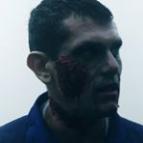
My $125 Blackmagic Pocket Cinema Camera Test
Juxx989 reacted to Santiago de la Rosa for a topic
Buy one BMPCC in good condition, there are some already rigged and the image is beauty.1 point -
Flyby quickie question: is the title-safe zone dead?
HelsinkiZim reacted to pablogrollan for a topic
In my experience -for broadcast- the 80% safe zone is used less and less... instead the 90% frame is now considered both action safe and title safe. Most TV station bugs are now placed in the 90% safe zone, but as Hans Punk pointed in those cases you just adhere to whatever rules and guidelines each broadcaster has. As for "social media" or any direct to web content, I believe it's better to follow the same rules (including loudness normalization, not just safe colours and titles) to keep a standard, and even just because it is aesthetically more pleasing.1 point -
It seems like DPR shot the scenes as though they were shooting RAW stills. Very much ETTL and willing to err on underexposing to not clip ANY part of the scene.1 point
-

Flyby quickie question: is the title-safe zone dead?
HelsinkiZim reacted to Hans Punk for a topic
As a general rule - title safe zone for digital distribution is not a law that if broken, will result in death. In the digital distribution realm there are few hard restrictions regarding titles or text on screen (but there perhaps should be!) Newer considerations are things like placement for banner or click button overlays on YouTube videos - or keeping an area clear for a watermark that will be overlaid during streaming etc. For movies or TV-style content it is recommended to adhere to the traditional broadcast standards because more 'online' or 'digital distribution' long-form content is now being streamed to consumer TV displays. If submitting to Netflix or other streaming service - they will have their own standards and guidelines to follow...most probably along the same lines as terrestrial TV broadcast, but with 4k resolution as the delivery standard (to ensure longevity for archive and for 4k streaming services). For terrestrial TV broadcast there are still plenty of standards and rules about text size and placement, onscreen duration for legibility etc (often referencing title-safe for legal placement). A few years back when both 16x9 and 4:3 broadcasts were switching aspects on an almost programme by programme basis...having a 4:3 title safe area ensured that 16x9 text content could seen within the 4:3 frame of older 4:3 TV's. But now that 4:3 TV's are virtually extinct, the most restrictive title safe area to keep safe for has pretty much been killed. Now that 99% of viewers are watching wafer-thin bezel framed OLED or LCD screens (with standardised 16x9 digital broadcast signal) - the importance of action safe is also less of a consideration. However, it is still important to maintain the 16x9 title-safe zone whenever possible for digital distribution, as it does give a recognised standard to reference too and also helps ensure legibility and unified placement for titles/subtitles and descriptive text. Following the guides for lower third graphics and text will always be best to have within title-safe, as it's not only a broadcast requirement...it aesthetically works better for legibility and recognition.1 point -
@Andrew Reid Any chance you could upload a clip in 1080p with the standard picture profile and l-log? Would be interested to see how the 2016 firmware improved the l-log. Do you think dynamic range is any better?1 point
-

Petition for Samsung NX1 hack
LawDude reacted to lucabutera for a topic
Hello everyone, these days I started working in a new project for the construction of an smart adapter, by accident I discovered that the NX1 offers 2.4GHz and 5GHz Wi-Fi wireless networking connectivity compatible with IEEE 802.11b/g/n, as well as the faster 802.11ac standard which has enough bandwidth to stream 4K video wirelessly over 500Mbit/s. Can anyone verify this?1 point -
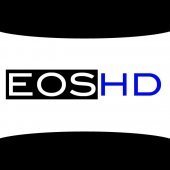
They shot Moonlight (8 Oscar nominations) with ProRes, not RAW
Oscar Downing reacted to Andrew Reid for a topic
Nofilmschool can fuck off.1 point -
They shot Moonlight (8 Oscar nominations) with ProRes, not RAW
Oscar Downing reacted to Evgeniy for a topic
and it's not 4k...why are they nominating films that are not in 4k at least? doesn't make any sense!1 point -
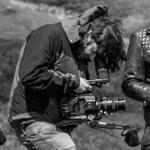
Final Cut pro X vs adobe premiere pro CC
EthanAlexander reacted to Oliver Daniel for a topic
I personally think FCPX is more advanced and built for the future (compared to PP). It's rather intuitive, but simplified approach is often mistaken by amazing software development. It's an editor that helps you work faster, better and more fluid. There's more time for creativity, rather than battling error messages and slow responses. I don't care less what people edit on, however the negativity usually aimed at FCPX is no longer totally justified. It's come on a long, long way and works brilliantly. Early haters should try again.1 point


